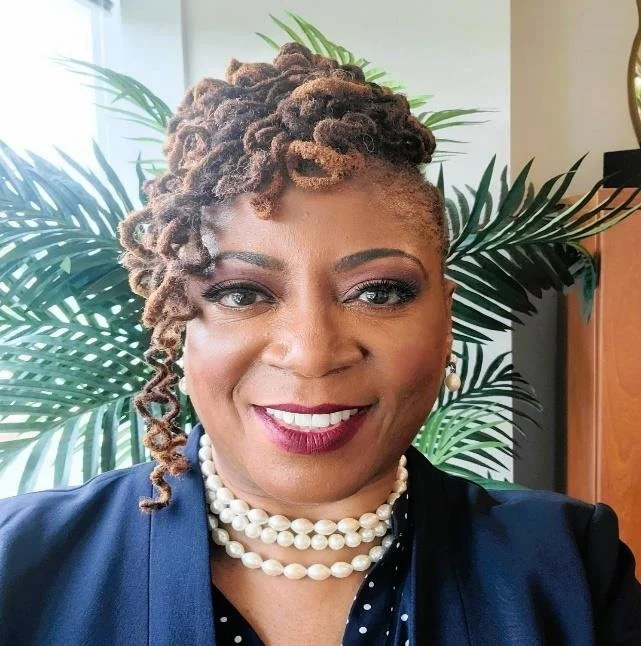Medicaid In Prince George’s: For Better Or Worse
A Safety Net Under Siege or Strengthened? What Medicaid Expansion—or Cuts—Could Mean for Prince George’s County. Freshman U.S. Senator Angela Alsobrooks Introduces New Legislation
Alsobrooks
In Prince George’s County, Maryland, the promise of accessible health care hangs in a delicate balance. For many residents, Medicaid isn't just a government program—it's the thin line between well-being and disaster.
On the Senate floor in Washington, D.C., a powerful voice from the heart of Maryland is fighting to tip the scales toward hope. Senator Angela Alsobrooks (D-Md.), a freshman senator with deep roots in Prince George’s County, introduced the Medicare and Medicaid Dental, Vision, and Hearing Benefit Act, a bold new proposal that could transform care for millions of Americans—and thousands right here at home.
The proposal is part of a sweeping package of Medicaid-related bills released by Senate Democrats, framed as a direct countermeasure to threats of Medicaid rollbacks tied to Republican-backed reconciliation bills. At stake? The future of essential health care access for the most vulnerable.
And for Prince Georgians, the stakes couldn’t be higher.
The Tragedy That Sparked a Movement
Senator Alsobrooks’ advocacy is as personal as it is political. She recalls the harrowing story of Deamonte Driver, a 12-year-old boy from Prince George’s County who died in 2007 from an untreated tooth infection after his family lost Medicaid coverage. Deamonte’s death shocked the nation and spotlighted a brutal truth: when access to care is stripped away, children die.
“Every child, every family, deserves access to quality, affordable dental care,” Senator Alsobrooks declared. “Access is literally a matter of life and death.”
Deamonte’s legacy now serves as the emotional foundation for the bill, which would expand Medicaid and Medicare to include routine dental care, eye exams, hearing aids, and related treatments. Under the proposal, coverage would gradually increase to 80 percent for services currently unavailable to many low-income individuals and seniors.
Why It Matters in Prince George’s County
Prince George’s County is Maryland’s second most populous jurisdiction and one of the most affluent majority-Black counties in the nation. But beneath the surface of its growth and pride lies a sobering reality: a health care system stretched thin.
As of 2024, more than 190,000 county residents—roughly one in five—rely on Medicaid or the Children’s Health Insurance Program (CHIP) for access to care. Many of them are children, seniors, and individuals with disabilities. For these residents, even minor health concerns can snowball without access to preventive and specialty care.
For example:
One in three county seniors lacks comprehensive dental insurance.
Low-income Black residents are twice as likely to lose teeth by age 50, often due to untreated cavities and gum disease.
Hearing loss, largely unaddressed in Medicaid plans, leads to isolation and cognitive decline in older adults.
School counselors in the county report increased mental health concerns in youth, yet access to care remains uneven.
Alsobrooks’ proposal isn’t just symbolic—it’s structurally transformative for communities like Prince George’s County, where the need is palpable and personal.
What’s Inside the Legislation?
The Medicare and Medicaid Dental, Vision, and Hearing Benefit Act is the flagship of a broader Democratic legislative offensive to shore up Medicaid protections and modernize benefits. Other bills introduced alongside Alsobrooks’ proposal aim to:
Stabilize enrollment by ensuring 12-month continuous coverage for those on Medicaid and CHIP (Whitehouse).
Boost funding for rural obstetric units, many of which have closed across Maryland (Wyden, Hassan).
Provide mental health support in schools with a 90% federal match (Warnock).
Cover postpartum care for a full year (Gallego).
Allow automatic Medicaid enrollment through tax filing (Van Hollen).
Collectively, these bills form a progressive bulwark against Republican efforts to restrict Medicaid eligibility, increase work requirements, and slash federal funding—measures that could boot millions from the rolls nationwide.
A Fork in the Road
The choice facing the country—and by extension, Prince George’s County—is clear.
If Medicaid is expanded, thousands more residents could gain access to preventive services, reducing the burden on emergency rooms and decreasing long-term health care costs. It would be a lifeline for parents who currently postpone care, seniors who suffer in silence, and children who—like Deamonte—deserve better.
But if Medicaid is cut, the consequences would be devastating. Prince George’s County, already contending with provider shortages, and rising uninsured rates, could see a surge in preventable deaths, increased poverty, and a public health crisis that disproportionately harms Black and brown communities.
Political Tides
The stakes are heightened by the looming specter of the 2025 reconciliation bill being shaped by Trump-aligned Republicans. Early reports suggest the bill could include:
Mandatory re-verification every 90 days.
Elimination of enhanced federal match rates for optional benefits.
Work requirements for non-disabled adults.
In a county where many residents work multiple jobs with no benefits, such provisions could be catastrophic.
“While Republicans seem hellbent on kicking as many people off their health insurance as possible,” Alsobrooks said bluntly, “we will fight tooth and nail to expand coverage.”
A County Ready for Change
Back in Mount Rainier, Langley Park, and Suitland, the conversation is shifting. Community health organizers, school nurses, and faith-based leaders are mobilizing, advocating for expanded Medicaid not just as a health issue—but a moral imperative.
“I’ve seen what happens when my students can’t hear in class because of untreated infections,” said a nurse at a Hyattsville elementary school. “We’re talking about kids losing their futures.”
For Angela Alsobrooks, this fight is just beginning. But in Prince George’s County, the message is already clear: health care isn’t optional. It’s foundational.
As the national debate unfolds, eyes are on Maryland—and on a bold new senator determined to make health care access a right, not a privilege.
“The Deamonte Driver tragedy happened right here. It should never happen again. Not on our watch.”
— Sen. Angela Alsobrooks (D-Md.)







